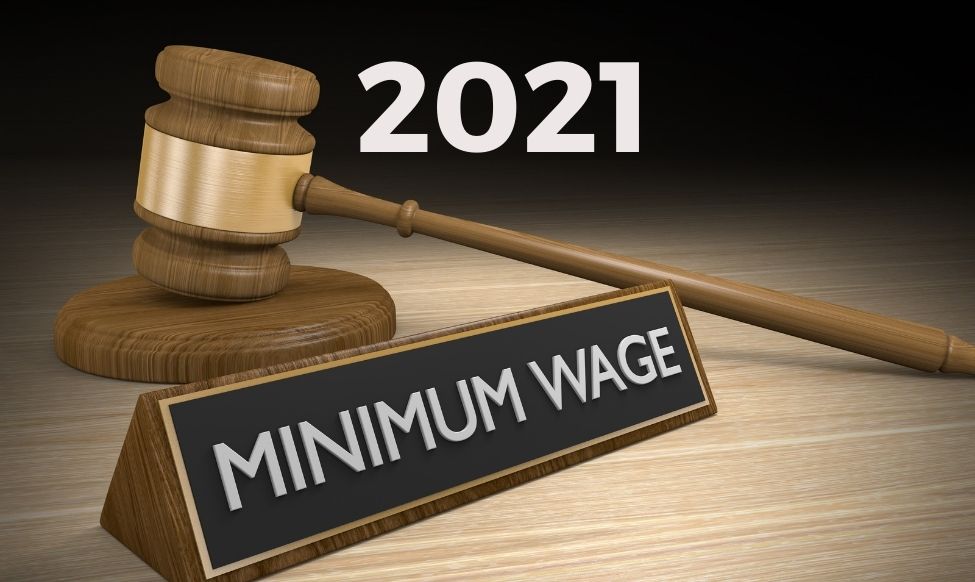It is that time of the year again. 2021 is nearly here and New York State has once again increased the minimum wage and the overtime exempt salary threshold effective December 31, 2020.
Minimum Wage Increase
Employers generally must pay nonexempt employees at least the minimum wage. Minimum wage throughout New York State may vary based on the employer’s size, geographic location, or industry. There are different hourly rates for workers in the fast food industry and those who receive tips. The table below outlines New York State’s 2021 minimum wage:
| Geographic Location / Increase from 2020 | 2021 Rate |
| NYC* (No change from 2020) | $15.00 per hr |
| Nassau, Suffolk, & Westchester / +$1.00 per hr | $14.00 per hr |
| Remainder of New York State / +$0.70 per hr | $12.50 per hr |
Next year, for Nassau, Suffolk, and Westchester Counties, the minimum wage will rise to $15.00 per hour on December 31, 2021. For the remainder of New York State, annual increases to minimum wage will continue until the rate reaches $15.00 per hour. The annual increases will be published by the New York State Commissioner of Labor starting October 2021. These annual increases will be based on percentage increases determined by the New York State Director of the Division of Budget, based on economic indices, including the Consumer Price Index.
* Unlike previous years, there is no distinction among number of employees for New York City employers.
Increased Salary Threshold for Overtime Exemption
Both federal law (Fair Labor Standards Act (FLSA)) and state law (New York State Minimum Wage Act and applicable regulations) generally require the payment of overtime wages for work performed after 40 hours per week. However, there are exemptions for certain salaried employees from federal and state minimum wage and overtime pay requirements. In addition to New York State’s minimum wage increase, the minimum salary that must be paid to workers classified as exempt under New York State Labor Law’s administrative and executive exemptions increased for 2021. As with minimum wage, the salary thresholds vary depending on the employer’s location and the number of employees. The table below outlines the revised salary thresholds in New York State:
| Geographic Location / Increase from 2020 | 2021 Salary Threshold* |
| NYC (No change from 2020) | $1,125.00 p/w ($58,500.00 annually) |
| Nassau, Suffolk, & Westchester / +$75.00 per week | $1,050.00 p/w ($54,600.00 annually) |
| Remainder of New York State / +$52.50 per week | $937.50 p/w ($48,750.00 annually) |
For Nassau, Suffolk, and Westchester Counties, the salary threshold will increase to $1,125.00 per week ($58,500.00 annually) on December 31, 2021.
* Numbers provided are pursuant to New York State law and are higher than the federal FLSA thresholds. Employees must meet certain duties tests in addition to their earnings or they will otherwise be eligible for overtime pay.
Future Minimum Wage Implications Across the Country
Twenty-nine states and D.C. have minimum wages above the federal minimum wage of $7.25 per hour. During the 2020 election, Florida residents voted to raise the state’s minimum wage, from $8.56 per hour to $15 an hour, in steps by 2026. Florida marks the eighth state in the county to adopt a $15 minimum wage (the other states are California, Connecticut, Illinois, Maryland, Massachusetts, New Jersey, and New York). This begs the question as to if there will be a national $15 minimum wage. According to a June 2019 study by the Congressional Budget Office, it is estimated that raising the minimum wage to $15 per hour would bring 17 million people out of poverty, but alternatively it could lead to 1.3 million job losses. In 2019, the House approved a plan to gradually lift the federal minimum wage to $15 per hour by 2025, but the Senate dismissed that legislation. President-elect Joe Biden has stated that he would like to raise the minimum wage to $15 per hour; however, the federal government does not currently have any plans for a potential increase.
It is very possible that legislation will be enacted to create a national $15 minimum wage, although this will most likely not affect employers in Nassau/Suffolk and the surrounding areas. Nonetheless, employers should review their wage and hour practices annually to ensure that their employees are properly classified as exempt or non-exempt and that current minimum wage and overtime rates are being paid to qualified workers. Take advantage of the new year to give your practices a fresh look.
If you have questions about minimum wage, overtime, or wage and hour exemptions, please contact us here or call (631) 738-9100.

